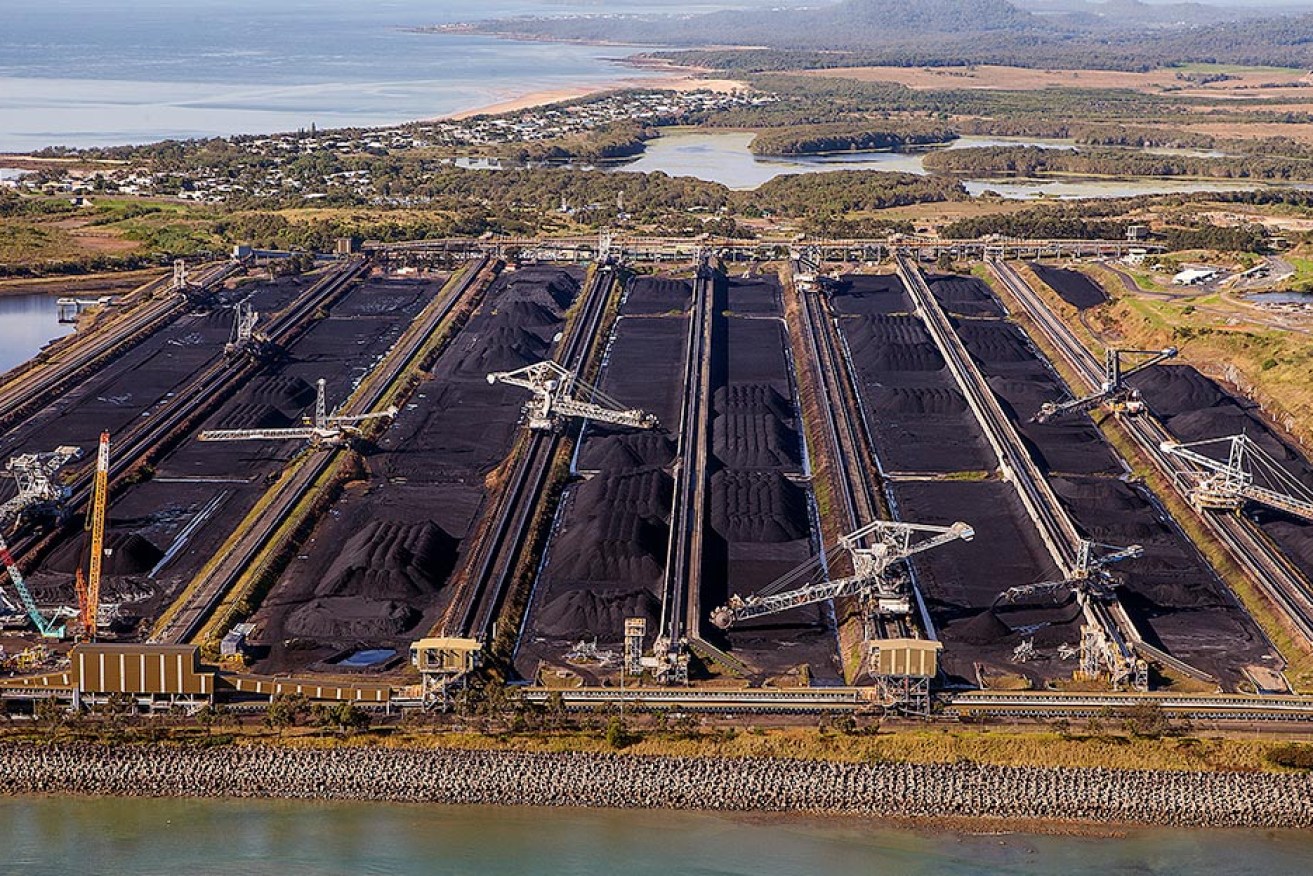Adani digs deep into its own pockets to dodge Abbot Point activists
Adani appears to have sidestepped an activist campaign to stop it refinancing debt at its Abbot Point coal terminal by dipping into its own pocket in its increasingly expensive fight over its Carmichael coal project.


The Dalrymple Bay coal terminal, near Mackay.
It’s the third time the company has apparently used its own financial muscle to circumvent the activist campaign against it.
It opted to use its own capital to fund the $2 billion development of the Carmichael mine and earlier this year paid out a $100 million bond issue over Abbot Point (AAPT). It had a second debt tranche due later this year and activists had been targeting its lenders to prevent a refinancing.
At the same time, Samsung, Hanwha and Yuanta all said they would not be a part of financing Adani.
Activist group Market Forces said Standard & Poor’s had reported a $170 million transfer from Adani Singapore to AAPT.
“This news, combined with a statement provided by the Commonwealth Bank to the House Standing Committee on Economics that there is no CBA loan … to AAPT (and) we have not been asked to extend capital to this project at this time”, indicates that the $170 million AAPT received from Singapore has been used to pay the $170 million worth of debt owed to CommBank and Westpac, and that these banks did not participate in refinancing that debt,” Market Forces said.
“AAPT now has US$140 million due in September 2021 and US$500 million due in Dec 2022. It has appointed four banks, Stifel, CLSA, Haitong and Emirates NBD Capital to organise a refinancing.”
Adani said it would not comment on the issue.
The activists have ruled out duplicating their Abbot Point campaign at the Dalrymple Bay coal port which is also on the market. It exports coking and thermal coal as does Abbot Point.
Both coals produce carbon dioxide when they are burnt but the difference is thermal coal is used in electricity production and coking coal is used in steel production.
However, Dalrymple Bay has not attracted any protests. Its potential suitors have been left alone and financing companies have not been targeted.
It’s now 10 years since Adani bought the project from Linc Energy and the activists have successfully slowed its development and ensured the project had to struggle to get financing.
While a long list of banks and financiers have said they would not work with Adani, other companies like Wagners, BMD, Martinus and Marsh have ignored the campaigns.
There are also coal projects that are as big or bigger than Adani’s planned 10 to 15 million tonnes a year production. They include Pembroke Resources’ Olive Downs mine and Glencore’s Valeria. Both have progressed through the approval chain and Pembroke is waiting now for a mining lease and have not been affected by protests.
Mackay Conservation Group’s Peter McCallum said Dalrymple Bay port was mainly for exporting coking coal “for which there is no ready alternative”.
“The other issue is that Adani’s purchase of Abbot Point was to facilitate the development of the Galilee Basin and enable the eventual export of 370 million tonnes per annum of mostly poor quality thermal coal,” McCallum said.
Market Forces Julien Vincent said his group did not disclose its campaign plans ahead of time.
“I would say our focus on Abbot point has a particular intensity right now given the importance of that asset to the Carmichael coal mine which has been the subject of community attention for close to a decade,” Vincent said.
“Beyond that, whenever we have the capacity we will talk to investors about the environmental and financial risks of coal infrastructure more generally.”
While it is generally accepted that there is no alternative to coal in steel production, Europe is now producing steel using hydrogen without the need for coal while thermal coal is quickly losing its market share to the rise of renewables.












